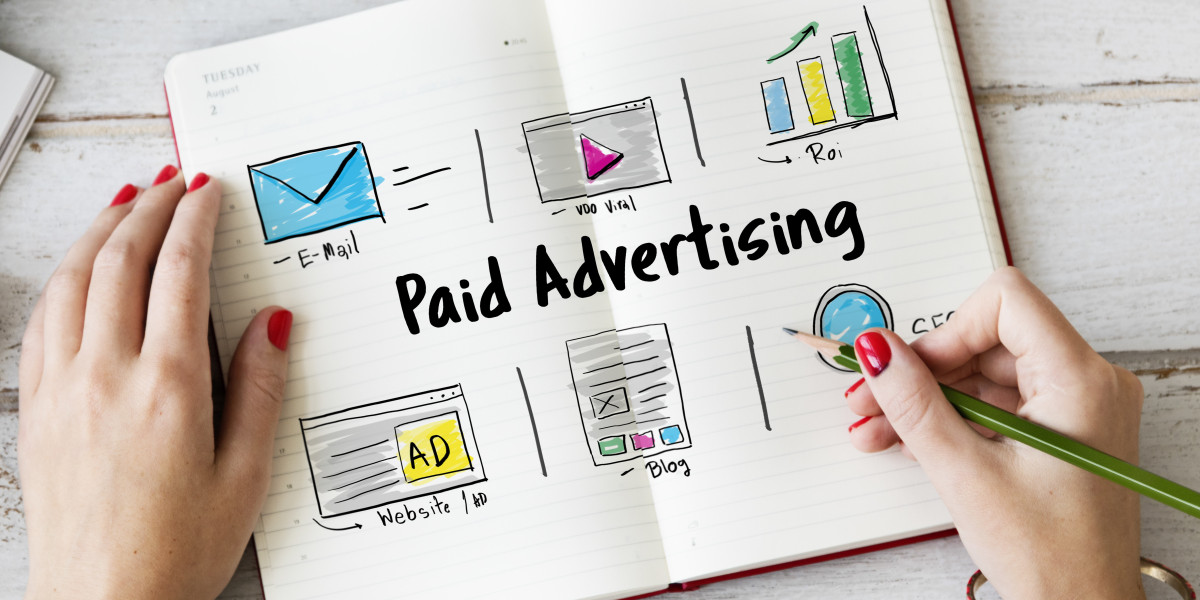In the dynamic landscape of digital marketing, pay per click (PPC) advertising stands out as one of the most effective strategies for driving targeted traffic to your website. However, choosing the right PPC advertising platform can be a daunting task, especially with the plethora of options available. Collaborating with a pay per click advertising agency can simplify this process and ensure your campaigns yield the best results. In this article, we will guide you through the essential factors to consider when selecting the right PPC advertising platform for your business.
Understanding Pay Per Click Advertising
What is PPC Advertising?
PPC advertising is a model where advertisers pay a fee each time one of their ads is clicked. It is a way of buying visits to your site rather than attempting to earn them organically. PPC is used to drive traffic to websites, where the advertiser pays the publisher (typically a search engine, website owner, or a network of websites) when the ad is clicked.
Benefits of PPC Advertising
- Immediate Results: Unlike SEO, which can take months to show results, PPC can drive traffic to your site almost instantly.
- Targeted Traffic: PPC allows you to target specific demographics, locations, and even times of the day.
- Measurable Results: PPC campaigns provide detailed analytics, making it easy to measure and track performance.
- Control Over Budget: You can set your budget for PPC campaigns, ensuring you never overspend.
Popular PPC Advertising Platforms
Google Ads
Google Ads is the most popular PPC advertising platform, providing access to a vast network of users. It allows advertisers to display ads on Google's search engine results pages (SERPs), YouTube, and other Google partner sites.
Bing Ads
Bing Ads, now known as Microsoft Advertising, is another powerful platform. Although it has a smaller market share than Google, it can be more cost-effective and reaches a unique audience not accessible through Google Ads.
Facebook Ads
Facebook Ads offer robust targeting options, allowing advertisers to reach users based on demographics, interests, and behavior. It’s particularly effective for B2C businesses aiming to build brand awareness and engage with potential customers.
Instagram Ads
Owned by Facebook, Instagram Ads offer similar targeting capabilities. With its visually-driven platform, it’s ideal for businesses with strong visual content.
LinkedIn Ads
LinkedIn Ads are perfect for B2B businesses looking to reach professionals and decision-makers. The platform allows targeting based on job title, industry, and company size.
Twitter Ads
Twitter Ads can be useful for businesses looking to engage with users in real-time. It’s particularly effective for brand awareness and customer engagement campaigns.
Factors to Consider When Choosing a PPC Platform
1. Business Goals and Objectives
Before selecting a PPC platform, define your business goals. Are you looking to increase brand awareness, drive website traffic, generate leads, or boost sales? Each platform has its strengths, and aligning your goals with the platform's capabilities is crucial.
2. Target Audience
Understanding your target audience is key to choosing the right platform. For instance, if your audience is primarily professionals and businesses, LinkedIn Ads might be the best choice. If your audience is younger and visually oriented, Instagram Ads could be more effective.
3. Budget
Budget is a critical factor in determining the right PPC platform. Google Ads can be more expensive due to its competitive nature, while Bing Ads might offer lower costs per click. Evaluate the cost-effectiveness of each platform in relation to your budget.
4. Ad Format and Creativity
Consider the types of ads you want to run. Google Ads and Bing Ads primarily offer text-based ads, while Facebook and Instagram are ideal for image and video ads. LinkedIn is great for sponsored content and InMail. Choose a platform that aligns with your creative assets and advertising style.
5. Performance Tracking and Analytics
Effective PPC campaigns require continuous monitoring and optimization. Ensure the platform you choose provides robust analytics and reporting tools. Google Ads and Facebook Ads excel in this area, offering detailed insights into campaign performance.
6. Competition
Analyze the competitive landscape. Some industries are highly competitive on certain platforms, driving up costs. Research your competitors' PPC strategies to identify less saturated platforms where you can gain a competitive edge.
7. Integration with Other Marketing Channels
Consider how the PPC platform integrates with your other marketing channels. For instance, if you're already using Google Analytics, Google Ads might offer seamless integration. Ensuring cohesive tracking and reporting across channels can enhance your overall marketing strategy.
Benefits of Working with a Pay Per Click Advertising Agency
Partnering with a pay per click advertising agency can provide numerous advantages, especially if you lack the expertise or resources to manage PPC campaigns in-house.
1. Expertise and Experience
A professional agency brings extensive knowledge and experience in managing PPC campaigns. They stay updated with the latest trends, algorithms, and best practices to ensure your campaigns are effective and efficient.
2. Customized Strategies
Agencies tailor their strategies to meet your specific business goals and target audience. They conduct thorough research and analysis to develop a customized plan that maximizes your ROI.
3. Advanced Tools and Technologies
Agencies have access to advanced tools and technologies for keyword research, competitive analysis, bid management, and performance tracking. These tools can significantly enhance the effectiveness of your campaigns.
4. Continuous Monitoring and Optimization
PPC campaigns require ongoing monitoring and optimization to ensure optimal performance. Agencies provide regular reports, analyze data, and make necessary adjustments to improve your campaign results.
5. Time and Resource Savings
Managing PPC campaigns can be time-consuming and complex. By outsourcing to an agency, you can focus on other core aspects of your business while experts handle your PPC efforts.
Conclusion
Choosing the right PPC advertising platform is a crucial decision that can significantly impact your online business's success. By considering factors such as your business goals, target audience, budget, ad format, and competition, you can make an informed choice that aligns with your objectives. Collaborating with a pay per click advertising agency in Phoenix can further enhance your campaigns, providing the expertise, tools, and resources needed to achieve outstanding results.



